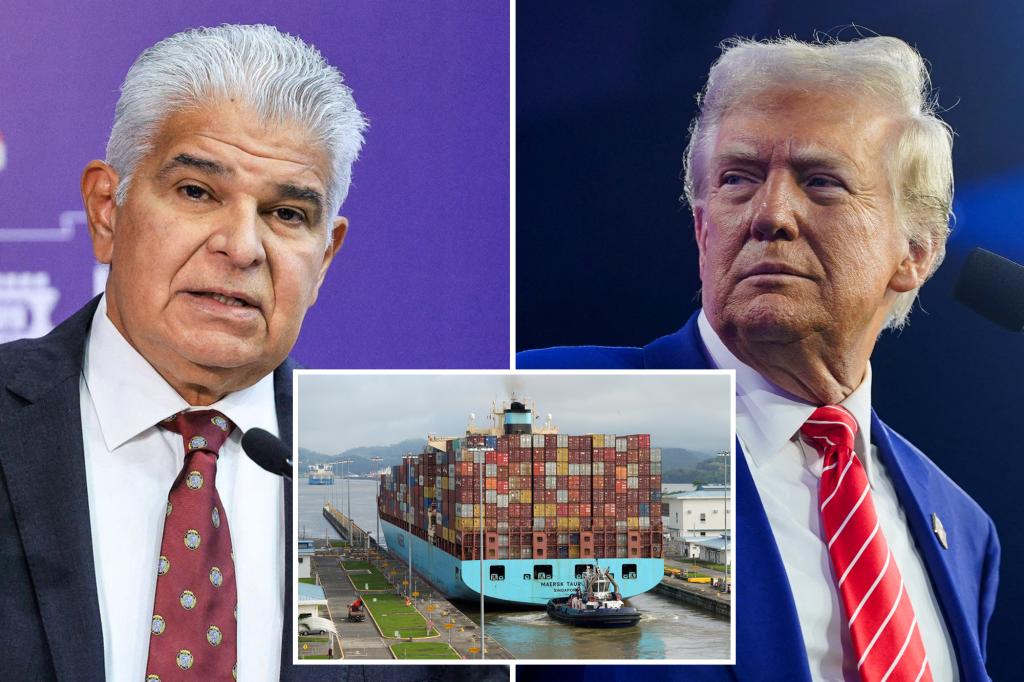The Panama Canal Dispute: A Clash of Sovereignties
The Panama Canal, a vital maritime route connecting the Atlantic and Pacific Oceans, has become the center of a heated international dispute between Panama and former US President Donald Trump. Trump’s assertion that the US is being "ripped off" by Panama’s "exorbitant" canal fees has ignited a firestorm of controversy, raising questions about sovereignty, international treaties, and the future of US-Panama relations. This dispute, rooted in historical context and punctuated by Trump’s aggressive rhetoric, has significant implications for global trade and international diplomacy.
The Panama Canal, initially constructed by the United States in the early 20th century, was transferred to Panamanian control in 1999, marking a significant turning point in the two nations’ intertwined history. The handover, formalized through the Torrijos-Carter Treaties, was seen as a triumph of Panamanian sovereignty and a gesture of goodwill on the part of the US. However, Trump’s recent pronouncements have cast a long shadow over this historical accord, threatening to reopen old wounds and potentially destabilize the region. His demands for the canal’s return, based on unsubstantiated claims of unfair pricing, have been met with staunch resistance from Panama and garnered criticism from international observers who view his statements as undermining international law and diplomatic norms.
Panamanian President José Raúl Mulino has responded forcefully to Trump’s threats, emphasizing Panama’s unwavering commitment to its sovereignty and territorial integrity. Mulino’s pronouncements, echoing the sentiments of many Panamanians, underscore the deep historical and emotional significance of the canal to the nation. The canal, a symbol of national pride and a testament to Panama’s hard-won independence, is viewed as non-negotiable, a sentiment that has unified the Panamanian people against what they perceive as an unwarranted external threat. Mulino has categorically rejected Trump’s demands, stating that the canal and its surrounding areas unequivocally belong to Panama and that the country’s sovereignty is not open to debate.
The dispute highlights the complex interplay of history, economics, and national pride that underpins the Panama Canal issue. For Panama, the canal represents not only a crucial economic asset but also a symbol of national identity and self-determination. The canal’s successful management under Panamanian control has been a source of national pride, further solidifying their resolve to protect their sovereignty. Trump’s rhetoric, on the other hand, reflects a nationalistic perspective that prioritizes perceived US interests, even if it means challenging long-standing international agreements and potentially jeopardizing diplomatic relationships.
Trump’s aggressive stance on the Panama Canal further reflects a broader pattern of challenging established norms in international relations. His rhetoric often echoes a transactional approach to diplomacy, prioritizing immediate gains and displays of strength over long-term strategic considerations and cooperative partnerships. This approach has been evident in his dealings with other nations, raising concerns about the stability and predictability of US foreign policy under his leadership.
The controversy surrounding the Panama Canal underscores the importance of upholding international law and respecting national sovereignty in a globalized world. The peaceful transfer of the canal to Panamanian control in 1999 was hailed as a model for resolving international disputes through diplomacy and adherence to treaties. Trump’s threats, however, undermine this precedent and raise concerns about the future of international cooperation. The resolution of this dispute will have significant implications for the future of US-Panama relations and could set a precedent for how international territorial disputes are handled in the 21st century. The international community is watching closely, emphasizing the need for a diplomatic solution that respects international law and the sovereignty of all nations involved.
Beyond the immediate political implications, the dispute also raises crucial questions about the future of the Panama Canal and its role in global trade. The canal remains a vital artery for international commerce, facilitating the passage of thousands of vessels annually. Any disruption to its operations, whether due to political disputes or other factors, could have far-reaching economic consequences. The current dispute underscores the interconnectedness of global trade and the importance of maintaining stable and predictable international relations to ensure the continued flow of goods and services. The long-term viability and prosperity of the Panama Canal depend on a stable and cooperative relationship between Panama and the international community, including the United States. The resolution of the current dispute will be a critical factor in determining the canal’s future and its continued contribution to global commerce.

